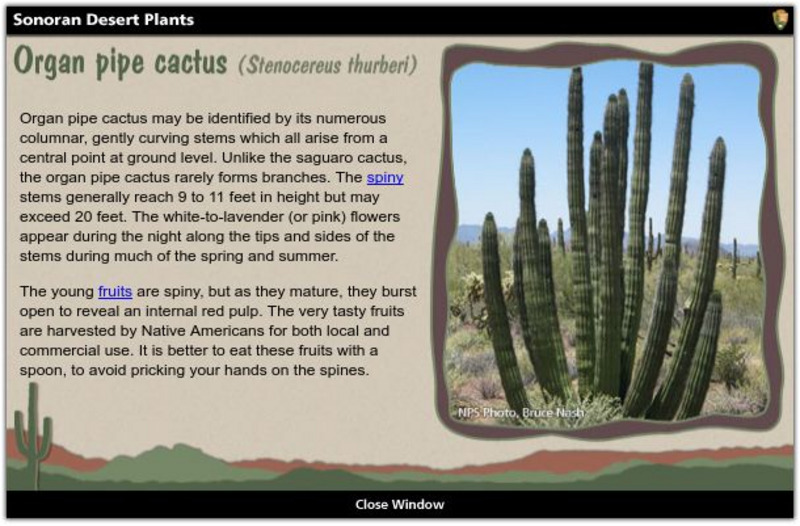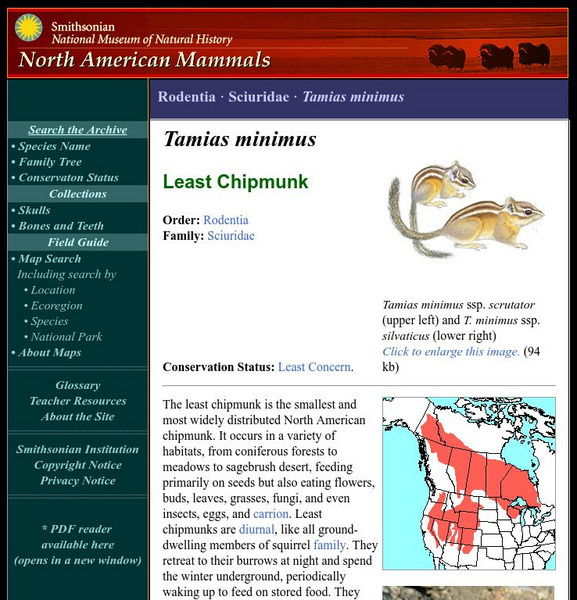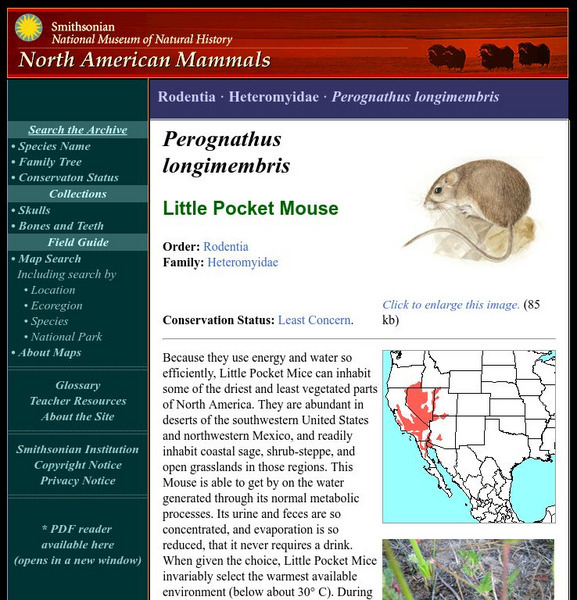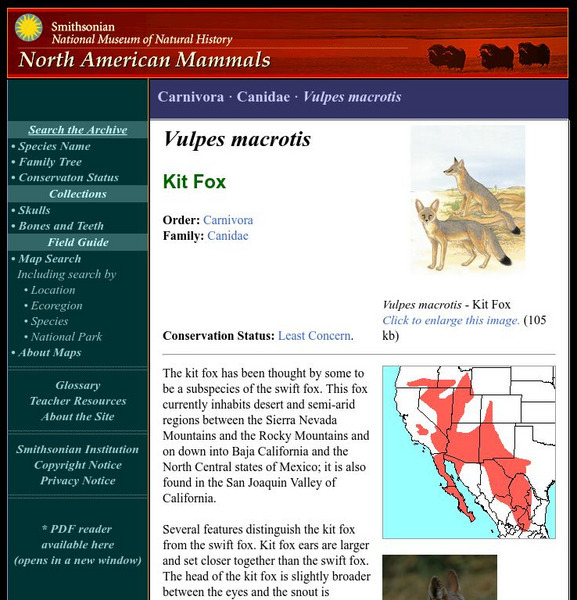Hi, what do you want to do?
California Historical Society
Understanding California
Here is a beautiful handout through which learners can explore the history of California, from the earliest Europeans to visit the Golden State up through its experiences during the Great Depression and position in the modern...
Encyclopedia of Earth
Encyclopedia of Earth: Conservation Biology: Mojave Desert
Information about the Mojave Desert: ways it differs from other deserts, its conservation status, and efforts to protect it. (Published: April 30, 2010)
Science Struck
Science Struck: Mojave Desert Animals and Plants
Describes characteristics and adaptations of plants and animals that are able to survive in the Mojave Desert and a list of each.
Other
Ecological Regions of North America [Pdf]
A helpful map of North America which color codes its 15 ecological regions. Click on the different regions for a brief description of the area. Requires Adobe Reader. [PDF]
Curated OER
National Park Service: Explore Nature: Views: Sonoran Desert: Organ Pipe Cactus
Snapshot reference on the Sonoran Desert organ pipe cactus describes its appearance, growth, and location.
Palomar Community College District
Major Biomes of North America
A good review of basic terminology followed by descriptions and pictures of the North American biomes.
PBS
Nh Pbs: Nature Works: American Kestrel
Can you name the smallest North American falcon? The American Kestrel is the answer to this question. Learn more about this fascinating bird of prey through this resource. Students will find information on the diet, habitat,...
Smithsonian Institution
National Museum of Natural History: American Mammals: Hooded Skunk
The Smithsonian National Museum of Natural History, in a section titled "North American Mammals," offers a general overview of the hooded skunk. Content includes detailed drawings, photographs, specimens, and a map showing the skunk's...
Smithsonian Institution
National Museum of Natural History: American Mammals: Least Chipmunk
The least chipmunk is the smallest and most widely distributed North American chipmunk. It occurs in a variety of habitats, from coniferous forests to meadows to sagebrush desert, feeding primarily on seeds but also eating flowers, buds,...
PBS
Pbs American Experience: Erwin Rommel (1891 1944)
This site is a brief biography of the military career of Erwin Rommel, the German Field Marshall during WWII.
Smithsonian Institution
National Museum of Natural History: American Mammals: Bobcat
The Bobcat is the most widely distributed native cat in North America. Bobcats occupy many habitat types, from desert to swamp to mountains. Learn more about the Lynx rufus, more commonly known as a Bobcat, in this easy-to-read species...
Smithsonian Institution
National Museum of Natural History: American Mammals: Nelson's Pocket Mouse
Nelson's Pocket Mice live in the Chihuahuan Desert of north-central Mexico and adjacent parts of western Texas and southern New Mexico. They are found mostly in rocky areas where there are some shrubs to provide cover. Learn more about...
Smithsonian Institution
National Museum of Natural History: American Mammals: Little Pocket Mouse
Because they use energy and water so efficiently, Little Pocket Mice can inhabit some of the driest and least vegetated parts of North America. They are abundant in deserts of the southwestern United States and northwestern Mexico, and...
Smithsonian Institution
National Museum of Natural History: American Mammals: Kit Fox
The kit fox has been thought by some to be a subspecies of the swift fox. This fox currently inhabits desert and semi-arid regions between the Sierra Nevada Mountains and the Rocky Mountains and on down into Baja California and the North...
Encyclopedia Britannica
Encyclopedia Britannica: Basin and Range Province
In this entry, you will learn about the physical features and location of the Basin and Range Province in the western United States.

















